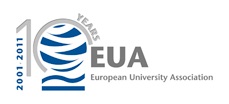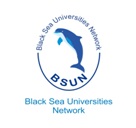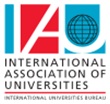Membership of Professional Associations and Networks
Ivane Javakhishvili Tbilisi State University (TSU) is a member of several professional associations and networks, which allows the university to enhance its administrative policies and practices and to position itself as a strong player in the area of higher education internationally. These cooperative networks strengthen academic and cultural relations among member universities and facilitate the search for new partners. Membership to these networks and associations reinforces academic and cultural ties between universities. More importantly, such networks and associations serve as channels for communication to exchange research developments and to disseminate information about academic exchanges and conferences for university faculty. Below is a list of university associations to which TSU belongs and a description of their organizational function.
European University Association
http://www.eua.be/Home.aspx

In 2005 Ivane Javakhishvili Tbilisi State University became an individual full member of the EUA.
The EUA’s mission as the voice of Europe’s universities is to influence the outcomes of European level policy debates on issues that will have an impact both on the national level work of university associations and on local level actions of individual member university associations. Equally, the EUA looks to support its members in understanding and responding to these developments in an ever-more complex and competitive global environment.
As the pan-European platform for universities, the EUA is the key partner for policy makers at European level in the increasingly broad range of public policy domains in which universities have a role to play.
Black Sea Universities Network
http://www.bsun.org/

The Black Sea Universities Network (BSUN) was established on the recommendation of the PABSEC Cultural, Education and Social Affairs Committee session held in Bucharest in August 1997.
Following the PABSEC recommendations, the network was established in 1998 in Constantza during the 2nd Conference of Rectors from the Black Sea Region. The academic community of the region has welcomed the idea of the network with enthusiasm and it has been developed, and currently is comprised of over 100 universities from the 12 member countries of the Economic Cooperation from the Black Sea Region (BSEC) - Albania, Armenia, Azerbaijan, Bulgaria, Georgia, Greece, Moldova, Romania, Serbia, Russian Federation, Turkey and Ukraine.
Agence Universitaire De la Francophonie
http://www.auf.org/
TSU became a member of AUF in 2004. The AUF is present on every continent, with more than 434 agents stationed in 65 branch locations operating under nine regional offices. Since 1989, this university association has been a vector for French-speaking institutions. As a partner of establishments for higher education and research who have chosen French as their teaching language, the AUF proposes several cooperative programs, designed in particular to support research and education in French.
Each year, AUF hands out more than 2 000 grants through its mobility/transfer program. Its budget, which amounts to over EUR 40 million, comes primarily from the government of France and, to a lesser extent, from Canada-Quebec, Belgium’s French Community, Switzerland and Cameroon.
Since 2000, the Agency has experienced a period of unprecedented development, marked by budget consolidation and a 50% increase in its membership. AUF is now the link between networks of 779 establishments covering every continent, in 90 countries, 53 of which are members of the International Francophonie Organization. France, Vietnam, Algeria and Canada are, respectively, the countries where the Agency has the largest number of members.
AUF’s development attests to its renown in academic communities and also to the attractiveness of the French language as a language for both learning and culture on the international scene.
AUF is headquartered at the campus of the University of Montreal (Canada-Quebec), and it aims at contributing to the construction and consolidation of a scientific area rooted in the French-language, by:
www.iau-aiu.net

Ivane Javakhishvili Tbilisi State University has been a member of the IAU since 1975. IAU, founded in 1950, is the UNESCO-based worldwide association of higher education institutions. It brings together institutions and organizations from some 120 countries for reflection and action on common concerns and collaborates with various international, regional and national bodies active in higher education. Its services are available on a priority basis to members but also to organizations, institutions and authorities concerned with higher education, as well as to individual policy and decision-makers, specialists, administrators, teachers, researchers and students.
IAU aims at giving expression to the obligation of universities and other higher education institutions as social institutions to promote, through teaching, research and services, the principles of freedom and justice, of human dignity and solidarity, and contributes, through international cooperation, to the development of material and moral assistance for the strengthening of higher education generally.
As stated in its Founding Charter, IAU’s mission is based on the fundamental principles for which every university should stand:
Magna Charta Observatory
http://www.magna-charta.org/

In 2010 TSU became a member of the Magna Charta Observatory. The Magna Charta Observatory of Fundamental University Values and Rights is a non-profit organization based in Bologna, founded by the University of Bologna and the European University Association (EUA).
The Magna Charta of the European Universities is the final result of a proposal developed by the University of Bologna, in 1986, in collaboration with Europe’s oldest universities. These universities enthusiastically accepted the idea of the Magna Charta. During a meeting in Bologna in June 1987, the delegates of 80 European universities elected an eight member board including: the President of the European Rectors Conference, the rectors of the Universities of Bologna, Paris I, Leuven, Barcelona, Prof. Giuseppe Caputo (University of Bologna), and Prof. Manuel Nunez Encabo (President of the sub-commission for Universities of the Parliamentary Assembly of the Council of Europe).
The Magna Charta Observatory aims to gather information, express opinions and prepare documents relating to the respect for and protection of the fundamental university values and rights laid down in the Magna Charta Universitatum signed in Bologna in 1988 by 388 rectors of universities from around the world.
The Observatory may work together or in agreement with other national, European or international organizations pursuing similar or compatible aims.
Ivane Javakhishvili Tbilisi State University (TSU) is a member of several professional associations and networks, which allows the university to enhance its administrative policies and practices and to position itself as a strong player in the area of higher education internationally. These cooperative networks strengthen academic and cultural relations among member universities and facilitate the search for new partners. Membership to these networks and associations reinforces academic and cultural ties between universities. More importantly, such networks and associations serve as channels for communication to exchange research developments and to disseminate information about academic exchanges and conferences for university faculty. Below is a list of university associations to which TSU belongs and a description of their organizational function.
European University Association
http://www.eua.be/Home.aspx

In 2005 Ivane Javakhishvili Tbilisi State University became an individual full member of the EUA.
The EUA’s mission as the voice of Europe’s universities is to influence the outcomes of European level policy debates on issues that will have an impact both on the national level work of university associations and on local level actions of individual member university associations. Equally, the EUA looks to support its members in understanding and responding to these developments in an ever-more complex and competitive global environment.
As the pan-European platform for universities, the EUA is the key partner for policy makers at European level in the increasingly broad range of public policy domains in which universities have a role to play.
Black Sea Universities Network
http://www.bsun.org/

The Black Sea Universities Network (BSUN) was established on the recommendation of the PABSEC Cultural, Education and Social Affairs Committee session held in Bucharest in August 1997.
Following the PABSEC recommendations, the network was established in 1998 in Constantza during the 2nd Conference of Rectors from the Black Sea Region. The academic community of the region has welcomed the idea of the network with enthusiasm and it has been developed, and currently is comprised of over 100 universities from the 12 member countries of the Economic Cooperation from the Black Sea Region (BSEC) - Albania, Armenia, Azerbaijan, Bulgaria, Georgia, Greece, Moldova, Romania, Serbia, Russian Federation, Turkey and Ukraine.
Agence Universitaire De la Francophonie
http://www.auf.org/
TSU became a member of AUF in 2004. The AUF is present on every continent, with more than 434 agents stationed in 65 branch locations operating under nine regional offices. Since 1989, this university association has been a vector for French-speaking institutions. As a partner of establishments for higher education and research who have chosen French as their teaching language, the AUF proposes several cooperative programs, designed in particular to support research and education in French.
Each year, AUF hands out more than 2 000 grants through its mobility/transfer program. Its budget, which amounts to over EUR 40 million, comes primarily from the government of France and, to a lesser extent, from Canada-Quebec, Belgium’s French Community, Switzerland and Cameroon.
Since 2000, the Agency has experienced a period of unprecedented development, marked by budget consolidation and a 50% increase in its membership. AUF is now the link between networks of 779 establishments covering every continent, in 90 countries, 53 of which are members of the International Francophonie Organization. France, Vietnam, Algeria and Canada are, respectively, the countries where the Agency has the largest number of members.
AUF’s development attests to its renown in academic communities and also to the attractiveness of the French language as a language for both learning and culture on the international scene.
AUF is headquartered at the campus of the University of Montreal (Canada-Quebec), and it aims at contributing to the construction and consolidation of a scientific area rooted in the French-language, by:
- Fostering scientific cooperation
- Training development players of the future
- Supporting research and excellence
- Sharing expertise.
www.iau-aiu.net

Ivane Javakhishvili Tbilisi State University has been a member of the IAU since 1975. IAU, founded in 1950, is the UNESCO-based worldwide association of higher education institutions. It brings together institutions and organizations from some 120 countries for reflection and action on common concerns and collaborates with various international, regional and national bodies active in higher education. Its services are available on a priority basis to members but also to organizations, institutions and authorities concerned with higher education, as well as to individual policy and decision-makers, specialists, administrators, teachers, researchers and students.
IAU aims at giving expression to the obligation of universities and other higher education institutions as social institutions to promote, through teaching, research and services, the principles of freedom and justice, of human dignity and solidarity, and contributes, through international cooperation, to the development of material and moral assistance for the strengthening of higher education generally.
As stated in its Founding Charter, IAU’s mission is based on the fundamental principles for which every university should stand:
- The right to pursue knowledge for its own sake and to follow wherever the search for truth may lead;
- The tolerance of divergent opinion and freedom from political interference;
- The overall goals of IAU are both internal and external:
- IAU links up its Members, offering them quality services, networking and collective action.
- The Association speaks on behalf of universities, other higher education institutions and associations and represents their concerns and interests in public debate and to outside partners.
Magna Charta Observatory
http://www.magna-charta.org/

In 2010 TSU became a member of the Magna Charta Observatory. The Magna Charta Observatory of Fundamental University Values and Rights is a non-profit organization based in Bologna, founded by the University of Bologna and the European University Association (EUA).
The Magna Charta of the European Universities is the final result of a proposal developed by the University of Bologna, in 1986, in collaboration with Europe’s oldest universities. These universities enthusiastically accepted the idea of the Magna Charta. During a meeting in Bologna in June 1987, the delegates of 80 European universities elected an eight member board including: the President of the European Rectors Conference, the rectors of the Universities of Bologna, Paris I, Leuven, Barcelona, Prof. Giuseppe Caputo (University of Bologna), and Prof. Manuel Nunez Encabo (President of the sub-commission for Universities of the Parliamentary Assembly of the Council of Europe).
The Magna Charta Observatory aims to gather information, express opinions and prepare documents relating to the respect for and protection of the fundamental university values and rights laid down in the Magna Charta Universitatum signed in Bologna in 1988 by 388 rectors of universities from around the world.
The Observatory may work together or in agreement with other national, European or international organizations pursuing similar or compatible aims.
European Association of ERASMUS Coordinators
The European Association of ERASMUS Coordinators (EAEC), is a membership network, which currently has more than 80 members. It was founded in 2004 in Lodz, Poland, with an official kick off during the ERACON 2005 (ERASMUS Conference and GO-Exchange Education Fair 2005) in Cyprus.
